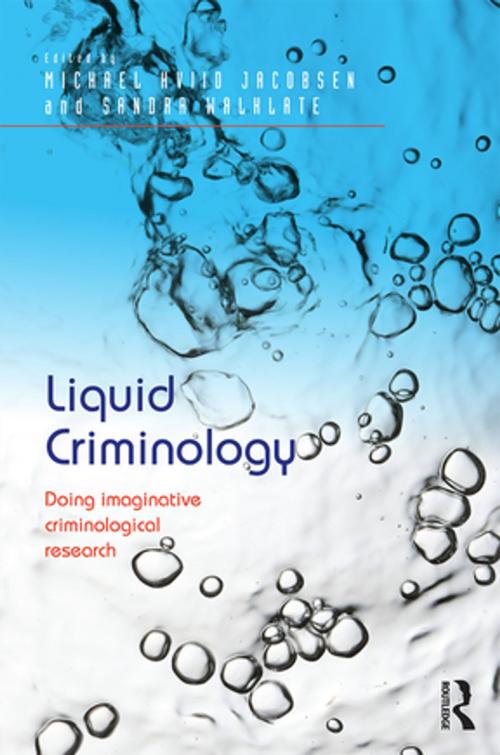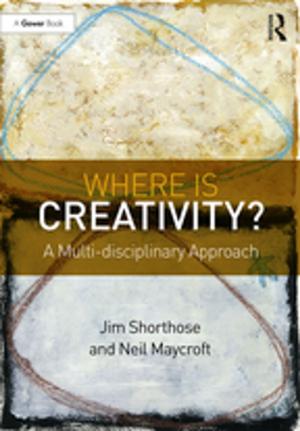Liquid Criminology
Doing imaginative criminological research
Nonfiction, Social & Cultural Studies, Social Science, Sociology| Author: | ISBN: | 9781317104827 | |
| Publisher: | Taylor and Francis | Publication: | June 17, 2016 |
| Imprint: | Routledge | Language: | English |
| Author: | |
| ISBN: | 9781317104827 |
| Publisher: | Taylor and Francis |
| Publication: | June 17, 2016 |
| Imprint: | Routledge |
| Language: | English |
This book explores the ways in which criminological methods can be imaginatively deployed and developed in a world increasingly characterized by the blurred nature of social reality. Whilst recognizing the importance of positivist approaches and research techniques, it advocates a commitment to understanding the ways in which those techniques can be used imaginatively, at times in combination with less conventional methods, discussing the questions concerning risk, ethics and access that arise as a result. Giving voice to cutting edge research practices both in terms of concepts and methods that shift the criminological focus towards the kind of imaginative work that comprised the foundations of the discipline, it calls into question the utility and credentials of mainstream work that fails to serve the discipline itself or the policy questions allied to it. A call not to 'give up on numbers' but also not to be defined by statistics and the methods that produce them, Liquid Criminology sheds light on a way of doing research for criminology that is not only creative but also critical. As such, it will appeal to scholars of sociology, criminology and social policy with interests in research methods and design.
This book explores the ways in which criminological methods can be imaginatively deployed and developed in a world increasingly characterized by the blurred nature of social reality. Whilst recognizing the importance of positivist approaches and research techniques, it advocates a commitment to understanding the ways in which those techniques can be used imaginatively, at times in combination with less conventional methods, discussing the questions concerning risk, ethics and access that arise as a result. Giving voice to cutting edge research practices both in terms of concepts and methods that shift the criminological focus towards the kind of imaginative work that comprised the foundations of the discipline, it calls into question the utility and credentials of mainstream work that fails to serve the discipline itself or the policy questions allied to it. A call not to 'give up on numbers' but also not to be defined by statistics and the methods that produce them, Liquid Criminology sheds light on a way of doing research for criminology that is not only creative but also critical. As such, it will appeal to scholars of sociology, criminology and social policy with interests in research methods and design.















